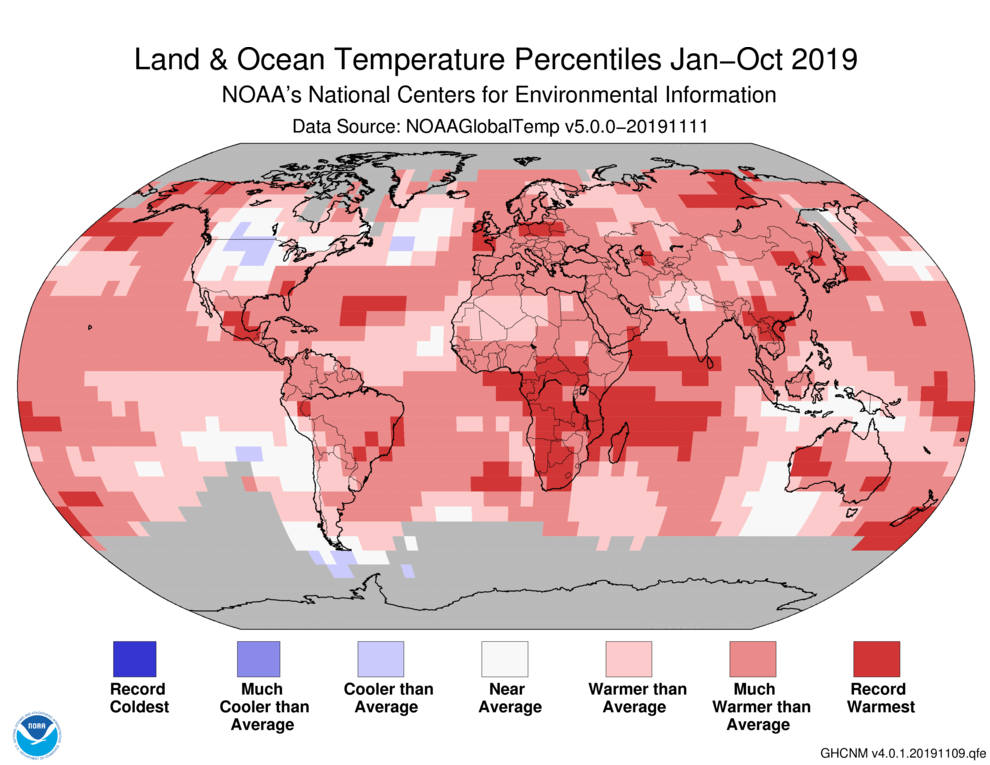To no one's surprise, 2019 will likely be the second-hottest year on record

Temperatures around the world broke records this year with climate events like heatwaves in Europe and hot temperatures creating drought-like conditions earlier than usual in places like Australia and the U.S. It's not a huge surprise, then, that the National Oceanic and Atmospheric Administration (NOAA) has released a report that expects 2019 to be the second-hottest year in its entire 140-year record. The report found that global temperatures, taken from January to October, averaged 1.69 degrees Fahrenheit higher than previous records. The highest January-October record was in 2016.
The NOAA, an agency that's part of the U.S. Department of Commerce, has tracked global temperatures since 1880, and provides the data to government officials, businesses, scientists, and the public for educational and policy-making purposes.
The report noted that Alaska, northwest Canada, and central Russia saw the greatest change in their temperatures, which were at least 3.6 degrees above average. Most of the rest of the world faced warmer or record-breaking heat. Although there were some parts of North America that saw cooler than usual temperatures, they weren't particularly notable. "No land or ocean areas," stated the report, "had record cold temperatures during January–October 2019."

NOAA also found that October temperatures were particularly high, making 2019 the second hottest October on record. All around the world — whether it was Hawai'i, South America, Europe, Asia, or Australia — October temperatures continued to break records. Sea ice levels in the Arctic and Antarctic were also lower than usual, with the Arctic measured at 32.2 percent below averages taken from 1981-2010. Two storms, a cyclone, and typhoon also broke records due to their strength and intensity.
The temperatures follow the overall trend of global warming that's happening all around the world. According to the Washington Post, the findings show that most of the record-breaking temperatures have come from the past two decades. The publication also noted that this October is the "43rd-straight October to be warmer than the 20th-century average," which meant that no one younger than 34 has ever experienced a globally "cooler-than-average year."
Researchers continue to point at greenhouse gases as the cause for the sharp and continued increase in temperature averages. Current human activity and development, such as relying on fossil fuels and deforestation, have only produced more carbon that can trap heat in the atmosphere. As the planet warms, the climate changes or becomes more extreme in areas, which experts have warned could cause considerable damage to communities, deplete food supplies, and create security risks.